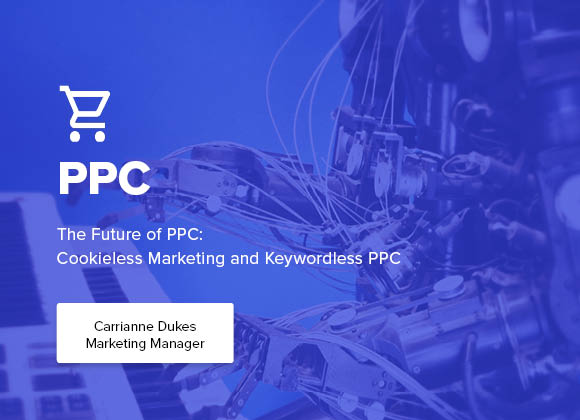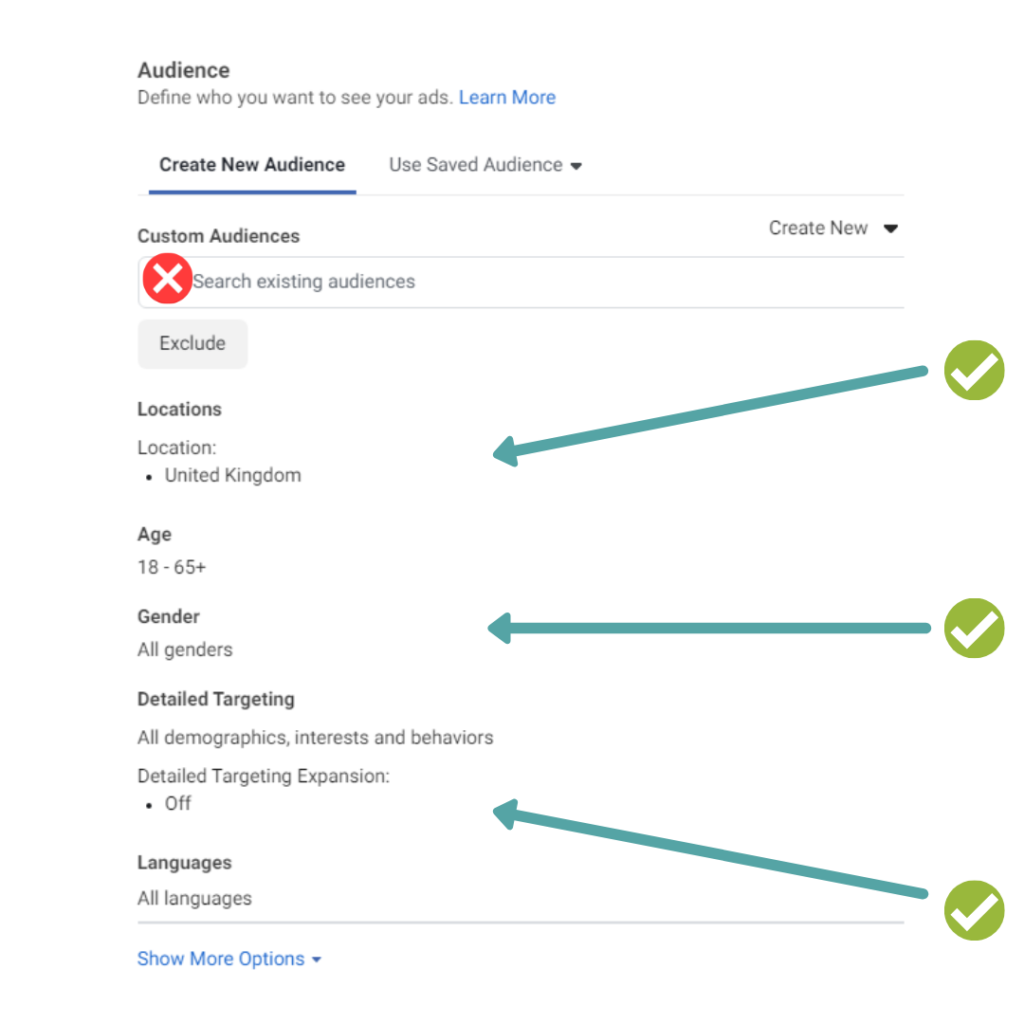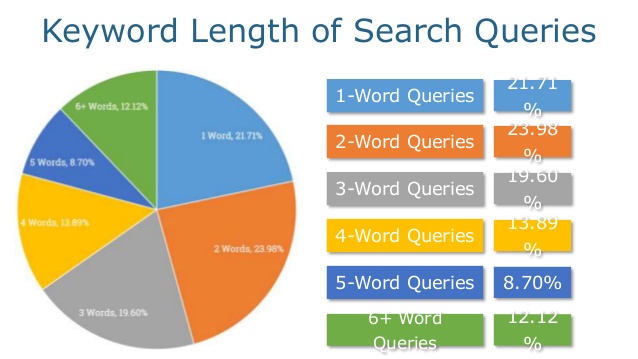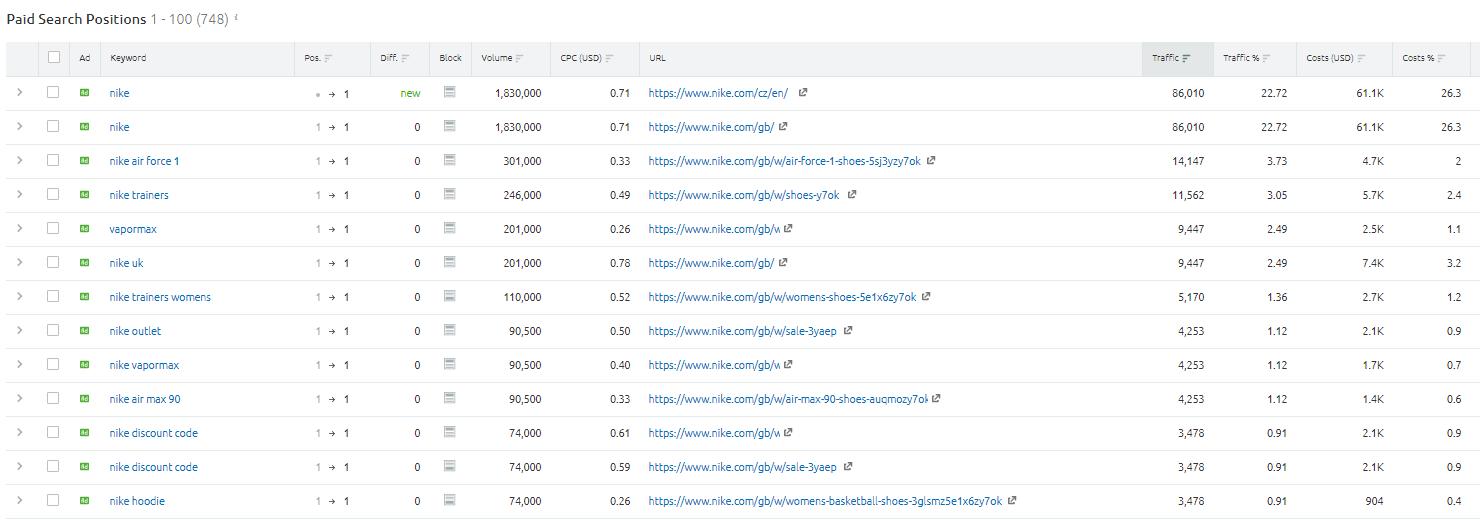Cookieless Marketing
Advancements in Pay Per Click Advertising (PPC) have been transformational over the past few years. It will not stop anytime soon. PPC is about to change, and marketers will have to adapt quicker than they have before. Cookies and Keywords are heading to the scrap heap.
The words every marketer fears have hit the headlines, the internet is going cookieless! By 2022, third-party cookies will be a thing of the past. Do you remember when Woolworths got snatched away from us and it hurt every vein in our body? Well, this will feel the same. Don’t panic. It is not the end of targeted marketing.
Remember those thousands of bid adjustments that kept you up at night? That will soon be a thing of the past. Say hello to Artificial Intelligence. Computers are taking over the world…
…only joking.
Did you know that cookie is another word for tracking? Google is naughty.
People are getting fed up with seeing Ads everywhere they browse, their privacy feels exploited, so the internet is putting a stop to it. However, will customers celebrate the lack of targeted Ads or get fed up with less relevant Ads appearing on their screens? Only time will tell.
What does Cookieless Marketing look like for marketers?
Dynamic Product Ads (DPAs) will be no more.
31-year-old Karen from Nottinghamshire, who has an interest in flowers and visited a gardening website on Tuesday, will no longer see a Facebook Carousel Ad of the products she browsed. She will no longer think her phone is listening to her.
There are arguments for and against Ads with hyper-targeting. Personally, our agency has found DPAs to be a profitable revenue source for our clients, so they do work.
While this may seem soul-destroying, laptop smashing and heart-shattering to advertisers who have success with DPAs, it isn’t. Brands can still expect to see fantastic results from their Facebook Ads while protecting their customers’ privacy by analysing and understanding the data.
This shift promotes honesty and transparency between advertisers and their customers.
Personalisation will still be possible from first-party data, location and time based messaging and contextual targeting. Brands will still have data about their customers, but they can’t use that data to target them from other sites (Facebook/Instagram/Google).
How do I get my campaigns ready for Cookieless PPC?
Even though cookies will still be around for a little bit longer, it is important to start adapting your marketing right now if you use Remarketing in your PPC strategy.
Create more prospecting Ads
Core Audiences aren’t going anywhere.
You will be able to target based on location, age, gender, demographics, interests, behaviours and languages.
You can still target a 31-year-old from Nottinghamshire who has an interest in flowers, it just might not be Karen – but is that a bad thing? (Insert a Karen joke).
Make sure you understand your customer, what makes them tick, what they love, and you will see great results from your Facebook Ads.
Improve your company’s data capture and start that now!
A few ideas to capture first-party information; collect emails, website actions, app behaviour and utilise a loyalty scheme.
A good thing about first-party data no one can take it away from you. It is yours to use, segment and analyse to strengthen your customer relationships.
Communicate with your customers about how you intend to use the data you are collecting. Be transparent and honest with them.
Improve your copy and creative
It has never been more important for your images and videos to be high quality. They must showcase your products in all their glory.
Utilise the skill and influence of copywriting to sell your products, create emotion and inspire your customers to shop.
Great copywriting books:
Everyone Writes by Ann Handley & The Art of the Click by Glenn Fisher are two of my favourites.
When Woolworth’s closed it was heart-wrenching, but the world carried on and we became stronger. Us advertisers will do the same when third party cookies become obsolete.
Keywordless PPC
First, they take away Broad Match Modifier and now they are taking away keywords altogether, but why Google and what does this mean?
Search Ads have started to become more dependent on Artificial Intelligence. From Responsive Search Ads to Dynamic Search Ads, we really should have seen this coming.
While this hasn’t been confirmed, speculation is mounting that keywords won’t have centre stage in Search Ads for much longer.
Will advertisers be able to bid on keywords? Kirk Williams believes the answer to be no (Kirk Williams, Search Engine Land, 2021).
User behaviour online has changed massively. Humans are inherently lazy. We want things quick and easy. Thanks to Jeff Bezos (Amazon), we know it is achievable. Long gone are the days of 14 day delivery time. Hello same-day delivery, one-click checkout and subscriptions.
What does this mean for keywords?
Google has made it easier and faster for people to get their searches answered. With voice search and Artificial Intelligence data, Google can predict what people are going to type.
Google serves users first, then brands second.
Therefore, over time the search terms that trigger Ads have gotten shorter. Advertisers have to base a large proportion of their campaigns on short-tail keywords instead of long-tail keywords or risk not appearing.
The SEO beauty and genius that is Rand Fishkin found the average keyword length of Search Queries.
While long-term keywords have a better conversion rate, they have lower volume. So, I recommend having Search campaigns for long-tail keywords but only hyper-relevant ones.
Take Nike, for example.
As you can see below, the keywords that generate the most traffic are short. BUT, they are high cost.
These long-tail keywords below generate them 0 traffic that they are bidding on:
However, don’t dismiss all long-tail keywords from your strategy. As mentioned above, hyper-relevant long-tail keywords are a gold mine.
This keyword below has volume, low cost and low competition.
The data above is SEM Rush.
I decided to delve into the data a little more and use the Google Ads tool, Keyword Planner, for more in-depth data on these search terms.
As you can see above, the top page bid on the long-tail keyword “Nike long sleeve running top” is £0.58, whereas the bid on “Nike” is £1.06.
The data speaks for itself.
First, Google introduced Responsive Search Ads. These types of Ads relied on a keyword, but they used their data to find out what headlines and descriptions worked best and put them on the Search Engine.
Now, Dynamic Search Ads are live. These do not rely on a keyword. Google crawls your site and then matches search results to the content on your site. The headline and landing page get matched to a search term.
As you can see, the keyword has started to lose its power. With Google’s latest developments, the future of Search Ads may indeed be Keywordless.
What does this mean?
Advertisers need to make sure the copy sells the benefits of the products and the companies USP. Delve into the emotional connection that your customers have with your brand.
Landing pages need to be fully optimised, easily navigated and a great user experience.
The User Experience of a website has never been as important as now. With Google prioritising this for SEO, their algorithm will favour it for PPC too. Quick checkout process, optimised Core Web Vitals, easy navigation, unique and informative content are just a few of the things you can do to improve the experience on your website.
Digital marketing is renowned for its quick evolving nature and it is never going to slow down. Advertisers need to be on the ball. Keep up with the latest trends, developments and channels to scale your businesses further.
We are a Google Premier Digital Marketing Agency that specialises in SEO, Social Ads and Google Ads for eCommerce stores. If you want to work with us, get in contact with us today.








